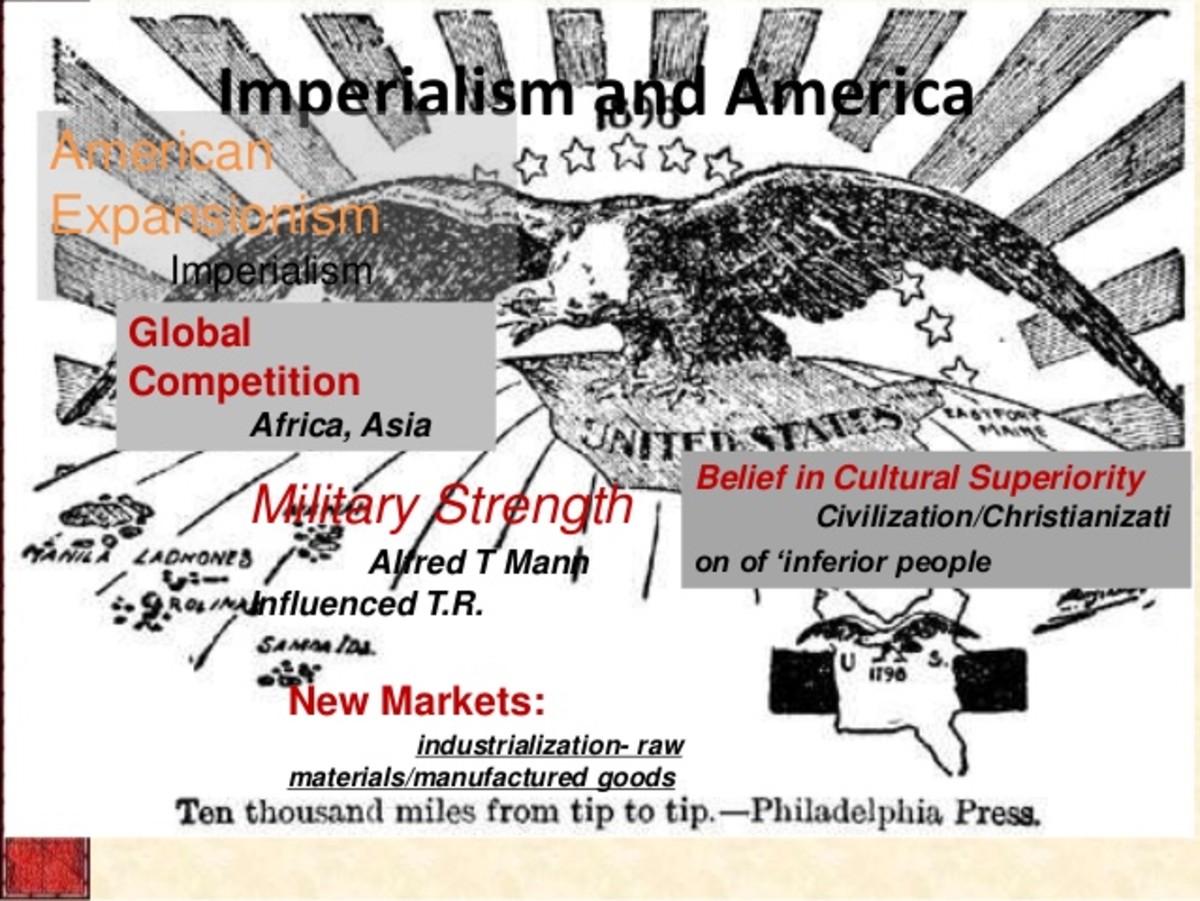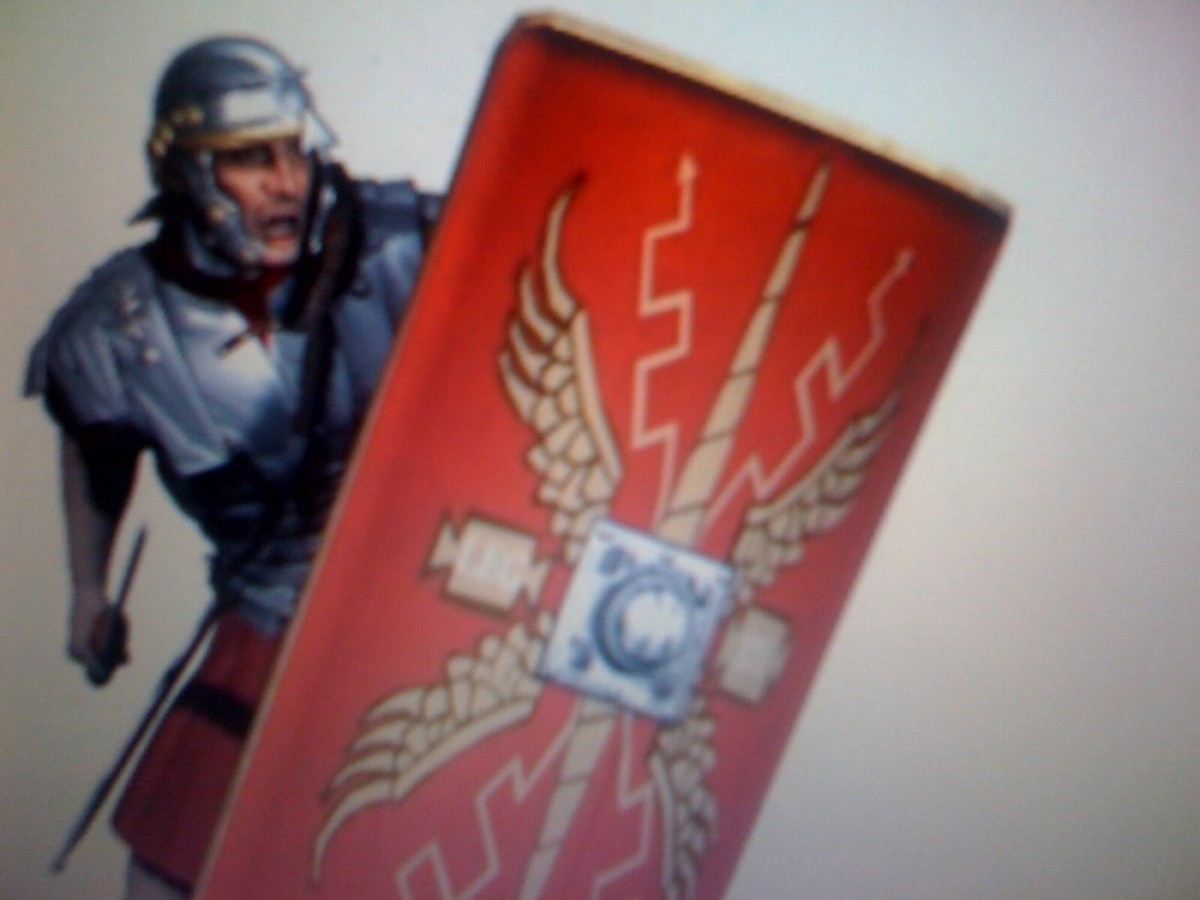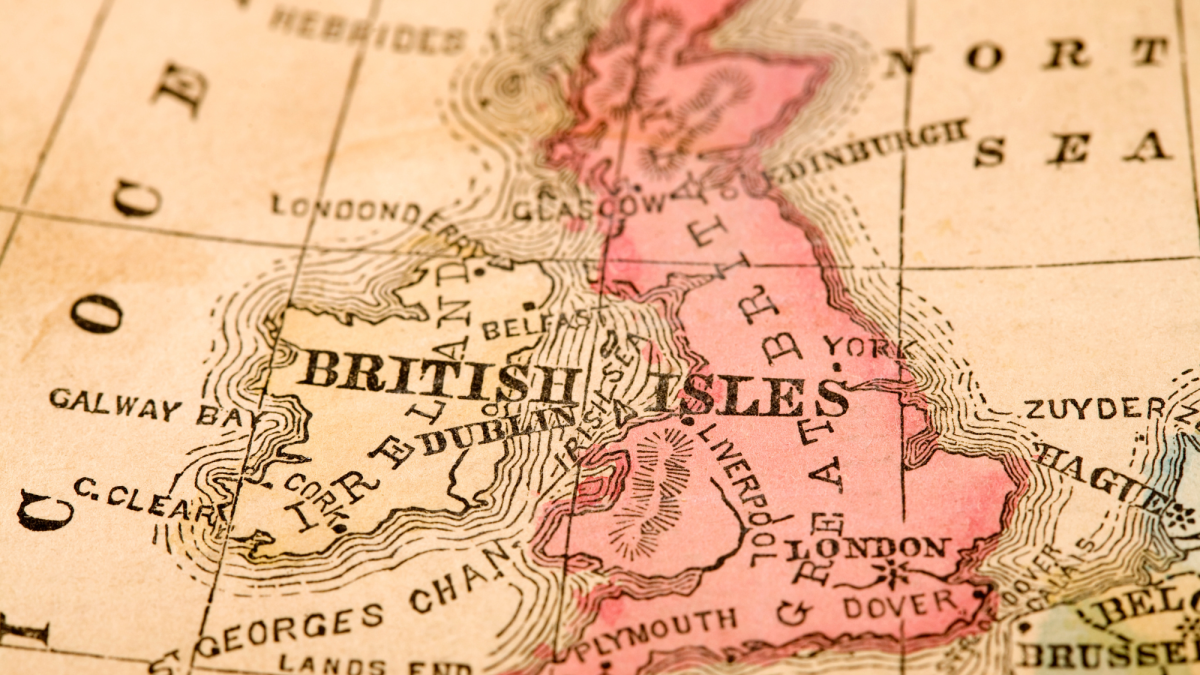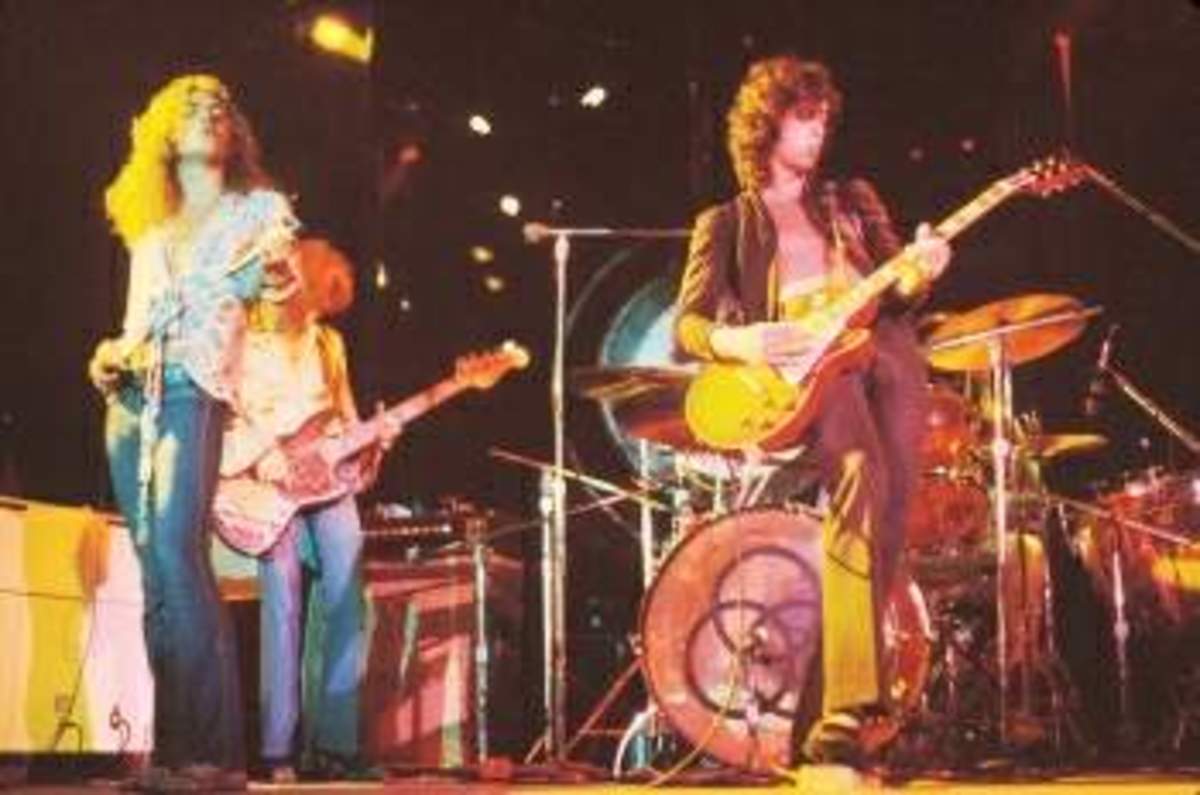Concept Album Corner - 'Arthur (Or The Decline and Fall of the British Empire)' by The Kinks
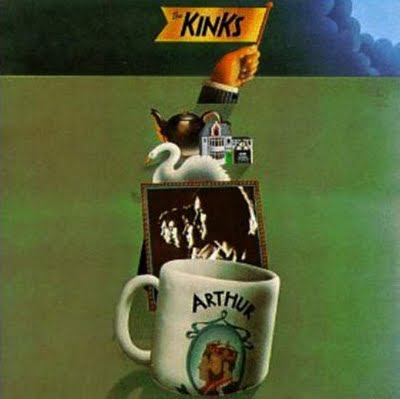
Whether the citizens of America choose to acknowledge it or not, the USA’s constantly altering fads and fashions are certainly influenced and mixed in with other cultures from across the globe. America has indulged in everything from German metal bands, Japanese animation, Australian food, and French arthouse films, but is most prominently influenced by its original Motherland: Great Britain. From the year of its conception, the USA and the UK have shared the most in terms of cultural influence (if you consider ‘forcing cultural influence then quietly backing off until the USA clamored for English television, movies, music, and literature’ sharing). Even today, British artists like Tom Hiddleston, Neil Gaiman, Ricky Gervais, and countless others are being widely recognized as iconic figures in America’s media.
The big historical event of this occurring began in the mid Sixties and is commonly referred to as The British Invasion. In the late Fifties, the youth of Britain was fascinated and entranced by the rebellious image and tone of American rock n’ roll at the time. While the first few attempts to replicate this style in Britain were unsuccessful, time improved many acts across Britain that have now become household names. The Beatles had attracted news agencies across America when the phenomena that was Beatlemania took hold over England. Capitol Records came to a great epiphany: The Beatles were in fact, marketable. The Beatles were signed to show up on The Ed Sullivan show in 1964, and from that point on, neither Britain nor America nor rock and roll would be the same.
Some bands that came out of this still have their names mortared in gold across the Hollywood Walkway equivalent of music. The Beatles, The Who, The Rolling Stones. Yet one of the most prominent figures of The British Invasion also seems to be one that isn’t anywhere near as well-regarded as the three I’ve just mentioned. This band was called The Kinks.
One of the longest running bands of The British Invasion, experiencing a plethora of peaks and plummets from 1964 until 1996, The Kinks were formed by brothers Ray and Dave Davies, a pair who certainly displayed a text-book example of sibling rivalry. Being the youngest of a family of eight, Ray often kept Dave, the younger of the two, in his shadow whilst Ray held place as leader and mastermind of the band, often being the creative force behind many of their concept albums. Not only was the relationship between the brothers tumultuous on its own, but the band itself had many hard times getting along. Dave Davies and drummer Mick Avory fought on-stage during their touring in 1965 and was banned from touring in America for the next four years. So rather than focusing on diverse cultural problems that could span across the world, Ray Davies began putting his time into the trials and tribulations of Great Britain at the time. This is where Arthur came in.
Arthur (Or The Decline and Fall of the British Empire) was originally planned as a television program with Granada TV approaching The Kinks to make the soundtrack to the piece. Muck like a Terry Gilliam film, the production side of things was rather troubled and cursed with bad luck. Production on the television program fell through and was never put into play. The bassist at the time, Pete Quaife, had finally had enough and left the band, and The Kinks previous album, We Are The Village Green Preservation Society (another concept album I hope to get to soon), was doing poorly in the commercial department. Nevertheless, The Kinks still turned out Arthur -- named after the Davies’ sister, Rose’s, husband, Arthur Anning –- and, with no television play to go along with it, they marketed it as a Rock Opera. Competition was tough, though, as another certain British Rock Opera by a very influential British Invasion band was released the same year. And even though music society mostly remembers the massive, sprawling epic of a Rock Opera by that other band, The Kinks still received favorable reviews with Arthur, with some citing it as their magnum opus.
So what is the story of Arthur? Well, let’s take a look.
1.) Victoria – The album begins with a very jaunty, lively tune, almost like that of a road-trip song, played on light cymbals and thick guitar beats, a staple of the feeling of the rest of the album. The album sets up the land in which the story takes place. Great Britain, of course. The lyrics, though, play it out as a sort of national anthem, a song of blind praise to the Great land of England, without exactly giving reasons for its greatness. Or, perhaps, confusing tyranny for kindness, most noticeable when listing off the countries that England used to ‘care for’. Canada to India/Australia to Cornwall/Singapore to Hong Kong/From the east to the west/From the rich to the poor/Victoria loved them all. An image on the liner notes of the album probably portray this song in the most fitting way: the main character, Arthur Morgan, in his house, which is in the firm, meaty, gigantic hands of a cartoonish Queen Victoria.The song acts as a magnificent set-piece for the album’s setting, tone, and theme: how much Britain sucked.
2.) Yes Sir, No Sir – The song is a bit lighter, at the beginning at least, then the album’s opening. A light acoustic tune plays over a stiff marching drum tune, one can immediately conclude that this is focused a bit moreso on Britain’s military policies (at least during WWII). Storywise, this detail’s the main character’s brother, Eddie, who had died in the midst of war. Like most British Invasion bands, The Kinks (actually, in fact, like most rock n’ roll bands in general) were very anti-authority and anti-war, which probably shows up the most in this song. The narrator of the piece, at least through the major verses, details a soldier asking for orders, which could represent the feelings of the general public of Britain at the time. With no guidance, no certainty, and knowledge of how to deal with tough situations like war and the like, they turned to those in authority for guidance. Sadly, though, even if everybody believed the higher classes knew what to do, that wasn’t always the case. In some cases, they just wouldn’t care. Ray Davies, in a hilarious Python-esque upper class English dialect, gives us this: Give the scum a gun and let the bugger fight/And be sure to have deserters shot on sight/If he dies, we’ll send a medal to his wife/(laughter).
3.) Some Mother’s Son – The Kinks were one of the most important parts of the British Invasion in many ways, but mostly for their inventive techniques and unique choices in instruments. This is one of those moments. Some Mother’s Son opens with a harpsichord that plays the major tune throughout, building and building with a semi-orchestral sounding harmony. This song, like the previous one, details the death of Arthur’s Eddie, but rather than focusing on the negligence of authority, it centers on the tragedy of their soldiers, particularly their deaths in battles. Save for maybe two other songs, I’d place this one as my personal favorite of the whole album. The song is laced with a hint of nostalgia and loss that just amplifies the woe that the lyrics carry: One soldier glances up to see the sun/And dreams of games he played when he was young/And then his friend calls out his name/It stops his dream and as he turns his head/A second later he is dead.
4.) Drivin’ – The Kinks sing a jazzy little tune that descends to the somewhat up-beat melody for the rest of the song, which details the ignorance of most British citizens to the major problems at in Britain, such as its establishment and its involvement in wars with other countries. Frankly, this and the next two songs are my least favorite tracks on the album, for different reasons each. These are not bad songs, I think. The music can bizarrely help each track out with the lyrics, which get across their major messages and certainly contribute to the theme of the album. But for personal reasons, they don’t strike as much interest with me as the other songs do. For this, I’d say it is the upbeat nature of the piece, which can get very annoying. The simple, nice tune of the piece does help, though, portraying a lovely, care-free society for England, amidst the back-drop of complications.
5.) Brainwashed – There isn’t a lot to say about this one. The title should probably be all too self-evident as to what the song is about, and the way it ties in with the album, one could probably already guess how by now. The tune is a very basic (though very awesome) form of a blues rhythm. There isn’t a lot to say about this one. It’s probably the best of the three songs I don’t like, so that must be something.
6.) Australia – Remember how in my Absolutely Free review how I said I couldn’t really stand overly long guitar solos and instrumental riffs? That’s the case with Australia. This bit sort of cuts back to the story of Arthur once more, who has great hopes and ambitions for his son, Terry, to go off and immigrate to Australia, which thematically ties back to the mostly unrealistic hopes that the British Empire had in conquering various other countries: We’ll surf like they do in the USA/We’ll fly down to Sydney for our holiday/On sunny Christmas day. The song itself is very lively and loud and very enjoyable, but for me, it starts to lose its charm when it goes off on its instrumental break in the middle that just keeps going and going.
7.) Shangri-La – Strangely enough, the title doesn’t actually detail the actual Shangri-La, but rather the name of Arthur’s home, so-called in a semi-sarcastic manner. At first, Arthur’s Shangri-La seems to be a true paradise, where he can sit by the fire after a hard day’s work, set to a calm acoustic picking and a lovely horn section. Then the picking speeds up and is accompanied by louder horns and a harpsichord, showing how Arthur’s home seems much more like a prison then a paradise. You’ve reached your top and you just can’t get any higher. For most of the middle class of England, they were stuck where they were, unable to get ahead in life and unable to rise into any semblance of upper class.
8.) Mr. Churchill Says – Like most of the other songs, the beginning of the piece is nice and somewhat light-hearted in its satire, detailing the obedience the British had to their authority figures like Winston Churchill when they were supposed to fight in battles to the very end. The song suddenly picks up in action and seriousness when a series of air-sirens wail in the skies, which is certain to freak out any fans of Silent Hill. Even in the midst of the harsh action of war, the people still go along with the war, brainwashed and blindly following their leaders wherever they tread.
9.) She’s Bought A Hat Like Princess Marina – Tied with Some Mother’s Son and Yes Sir No Sir as my favorite tracks on the album, the tune plays almost entirely on harpsichord in, again, an upbeat, stylish vaudevillian manner and nostalgic in some ways, like an old television show. It details the rationing and austerity period of middle class England, trying to by trifle things like hats and clothing, despite their poverty and low social status.
10.) Young and Innocent Days – Probably one of the saddest pieces of the album, basically about nostalgia, placed over an almost Indian sounding guitar picking. Arthur looks back at the England he used to love, the times where he could truly be care-free and not fool himself into believing so, the times when England was a simple paradise, at least in his childhood, now old and unable to go back in time to the good old days. I’ll admit, this song does pull a heart-string or two with me.
11.) Nothing to Say – Coming to the climactic end to Arthur’s life, his children have now grown up and left him, living their own lives, visiting on occasions. But each time they talk, nothing substantial is being discussed, nothing important, making nothing but small talk to convince themselves that things are still fine when they aren’t. How’s your independence? Nothing to say. How’s your rheumatism? Nothing to say. Eventually, Arthur bores his children and leave him again to live their own lives and not be bothered or bored by trifle things, the ultimate bullet to Arthur’s heart.
12.) Arthur – Finally, we’ve come to the title track, where The Kinks sing a ballad of the life of Arthur Morgan on another tonally dissonant, lively, bluesy tune. The song really introduces Arthur as the character, a plain simple man in a plain simple working-class position, stuck in place, but filled with hopes that he can rise up a level. Sadly, he won’t acknowledge that the world just won’t work the way he wants it to and often acts against him, no matter how hard he tries. Perhaps even worse, he knows how rotten his England has become and that nothing he can do will change it. The song is very sympathetic to Arthur’s mishaps, but at the same time, unable to give him a solution to his problem, hoping he’ll be able to find it. Arthur we love you and want to help you/Don’t you know it? Don’t you know it?
I honestly find it somewhat surprising that The Kinks haven’t become as popular as bands like The Beatles and The Rolling Stones. Perhaps the fact that their commercial failures and their lack of American touring certainly caused them to suffer in that area, so maybe I shouldn’t be too surprised. But I believe that it’d be fitting for The Kinks to grow in their musical fan-base to at least Rolling Stones level material. This album is great proof of that.
At times, Ray Davies’ lyrics can get preachy and feel like a great anvil of anti-establishment is dropped on your head at all times. But the music itself, save for maybe one or two cases, is fantastic and quintessentially British (at least for the 60’s). I would dare even call it one of England’s greatest albums, which is a bit ironic considering how clearly it criticizes England’s faults and condemns its stature as a lovely, orderly, well-behaved society. It is a Rock Opera that could certainly give artists like John Lennon and Pete Townshend a run for their money. If you've not heard of this band yet, do them a favor and give them a listen.


